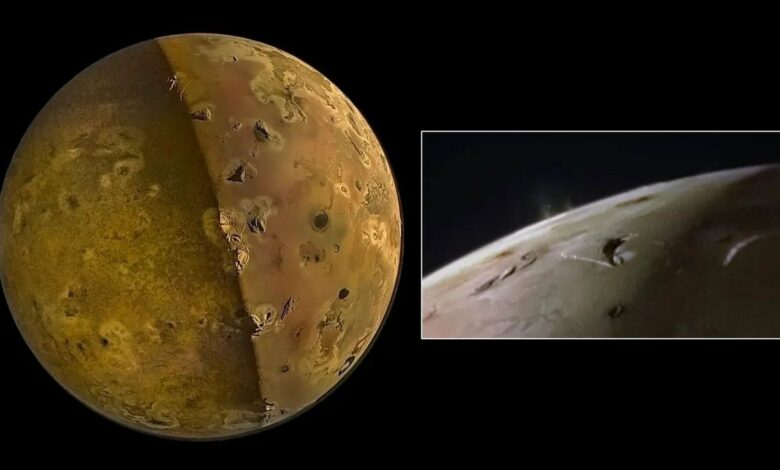Io’s volcano mystery solved: no global magma ocean found

Recent research published in Nature has raised questions about the volcanic processes taking place on Jupiter’s moon Io, especially regarding the absence of a global magma ocean beneath its surface. Data collected by NASA’s Juno spacecraft, combined with historical information from the Galileo mission, suggests that Io’s interior is sturdier than previously thought. This revelation has implications not only for Io, but also for our understanding of tidal warming in other celestial bodies.
Juno and Galileo findings reveal solid interior
Scientists, led by Ryan Park of NASA’s Jet Propulsion Laboratory, analyzed data from Juno’s close flybys of Io, conducted between December 2023 and February 2024, according to reports. These measurements, along with archival data from Galileo, focused on Io’s gravitational field and its deformation under Jupiter’s intense gravity. It was found that Io’s rigidity rules out the possibility of a moon-wide ocean of molten rock. Previous theories, based on data on magnetic induction and the distribution of volcanic activity, had suggested that such an ocean might exist to facilitate the movement of heat beneath Io’s surface.
Source of lava is still being investigated
According to According to reports, Io is home to about 400 active volcanoes, the surface of which is covered by vast lava plains. Without a magma ocean, the molten rock that erupts from these volcanoes must come from local melting points in the mantle. These areas are thought to be heated by tidal forces exerted by Jupiter and its neighboring moons Europa, Ganymede and Callisto. The constant twisting and squeezing caused by these gravitational interactions generates heat, although this appears insufficient to maintain a fully molten layer.
Implications for exoplanetary studies
The findings extend beyond Io and influence theories about exoplanets in close orbits around M dwarf stars. Like Io’s interaction with Jupiter, these exoplanets experience tidal heating. The absence of a global magma ocean on Io challenges the assumption that such exoplanets would host extensive molten layers, prompting scientists to reexamine these models.




